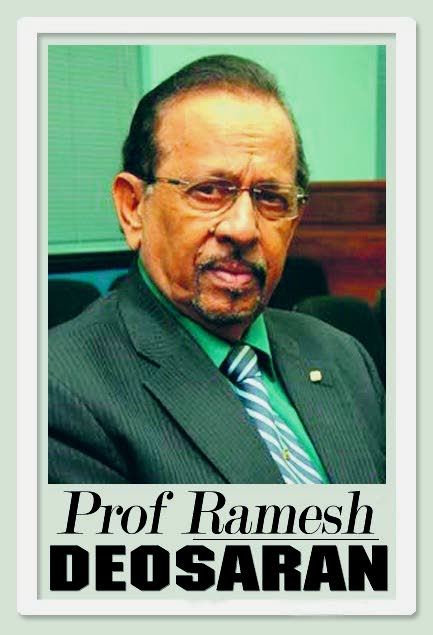The politics of race

The issue of race has invaded our political space once again, typically attracting opinions as diversified as racial diversity itself. It is quite intriguing how, hoping for betterment, we continue to delude ourselves.
Almost 50 years ago, sociologist Philip Mason wrote: “The rosy image of multiracial harmony, however, grossly distorts both the actual fact and the way they are locally seen. A sociological description of Trinidad depicted a society at odds with a popular culture of easy-going interracial mingling.”
In his 1990 appeal to make the Equal Opportunity Commission constitutional, Prof John La Guerre gave an historical explanation for the continued tensions between the ethnic groups here, especially between Africans and Indians.
The 1990 Hyatali Commission admitted “there is no doubt that TT presents to the outside world a picture of racial harmony, but there exists nonetheless beneath the surface smouldering embers of racial and ethnic friction.”
“Beneath the surface” implies the reciprocal ill-will is as psychological as overtly political.
What can be done to heal or reconcile perceived or real differences and repair the contributing systems? The challenge is, how do we manage a multi-ethnic society?
There are three issues here:
1. Given past experiences and the repeated examinations of the subject, it clearly shows we are not a learning society.
2. We persist in reinventing the wheel and recycling the same at great cost to taxpayers, even when we have opportunity to do better.
3. And we continue to find fault, blame and be hostile to one another as if we are “born racists.”
The distinguished Wooding Commission in 1974 noted the unhealthy relationship between race and politics, with special reference to the first-past-the-post electoral system. Counting the serious imbalances between number of seats won and the number of votes cast for the various parties, the commission wrote: “At the very centre of recent political agitation has been the demand for electoral reform. There was also widespread support for replacing the present system of first-past-the-post elections with some form of proportional representation.”
The commission proposed a mixed system of first-past-the post and proportional representation to help bring equity and psychological relief to the electoral system especially for “minority groups.”
The intrusive fact is that neither Africans nor Indians here can be considered a “minority group.” With almost equal proportion, the tension will rise. The NAR alliance quickly reverted to racial fragmentation.
Part of the difficulty in treating with race relations is that so much is fuelled by self-serving perceptions which dominate behaviour. Hence much empathy is required from one another and a shared political and economic system that seems fair and just.
It remains surprising that with a full-fledged Equal Opportunity Commission, a tough set of constitutional human rights and freedoms, independent service commissions and judiciary and independent media, there are still so many “beneath the surface” grievances and allegations of discrimination.
Part of the answer, given regular allegations and cross-allegations, lies in having weakened state institutions and politicians and senior public officials abusing their powers of discretion with favouritism and even nepotism.
Much of this inexorably flows from the tradition of party politics. To the extent that this cannot be effectively changed, to that extent we will have to live with things as they are. Like covid19.
That is why, too, members of political parties face a moral dilemma – knowing what is right but protecting what is wrong with and in the party.
At times when the nation’s political and economic resources are to be shared, some degree of racial tension arises. But when common purpose is at hand, racial solidarity blooms, such as in beach clean-ups, international football, flooding, etc. It is inspiring to witness the common-purpose racial mixture in the IPL and CPL cricket games.
The structure of the political system is competitive and hotly adversarial, accepted as the democratic way. And as our political demography has it, it appears generally as an urban-vs-rural fight, PNM vs UNC, one race vs another race. Is there no common-purpose alternative?
This is the 21st-century question that needs answering, especially for small, multi-racial states.
The current system damages common purpose, subverts multi-racial harmony and leaves almost half of the country vengefully waiting for its turn.
Racial tension begins with politics. Politics should also end it.

Comments
"The politics of race"